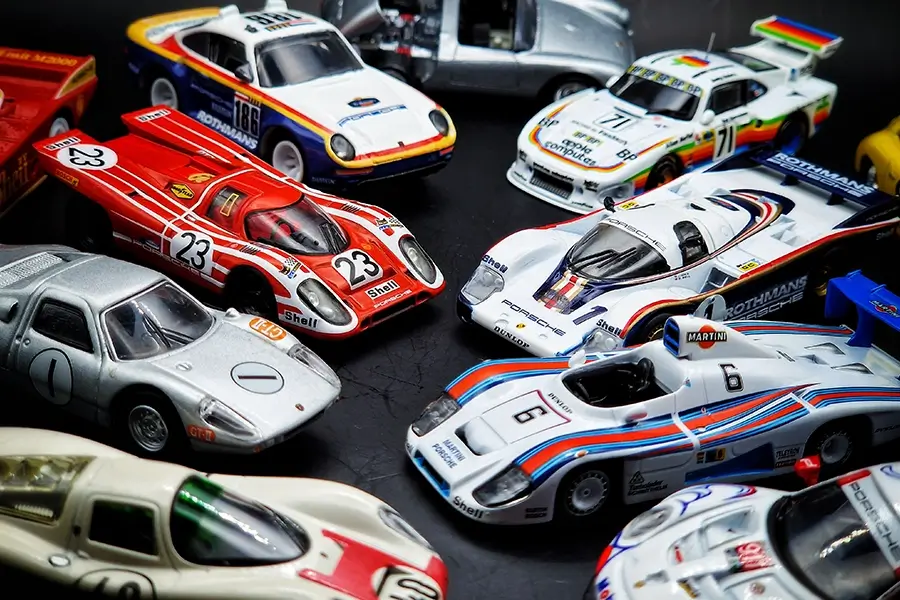
PORSCHE – Racing legends for eternity -Tarmacworks, Schuco, Spark, Kyosho FEATURETTE
The living legend, built for eternity
Three out of every four Porsches ever built are still on the road. Or are somewhere in the air-conditioned halls of collectors. This fact not only emphasises the outstanding production quality of the Swabian sports car manufacturer - it also shows how much enthusiasm there is for the brand. The amount of love and care with which the vehicles from Zuffenhausen have been preserved over the decades is probably unparalleled - and in most cases a worthwhile investment.
An endless winning streak
Porsche has celebrated over 30,000 race victories since it was founded. Among them: Eight world championships in endurance racing, several world championship titles in Formula 1 (as engine supplier) and 17 overall Le Mans victories are impressive proof of the company's motorsport expertise. And yet the hunt for trophies in almost every category of motor racing is not the measure of all things for Porsche. The technical knowledge gained from motorsport involvement was and is just as important for Porsche as first, second or third place. Because through racing, Porsche gains development expertise for series vehicle construction. Sports cars for even better sports cars is the philosophy.
Porsche 356 und 550
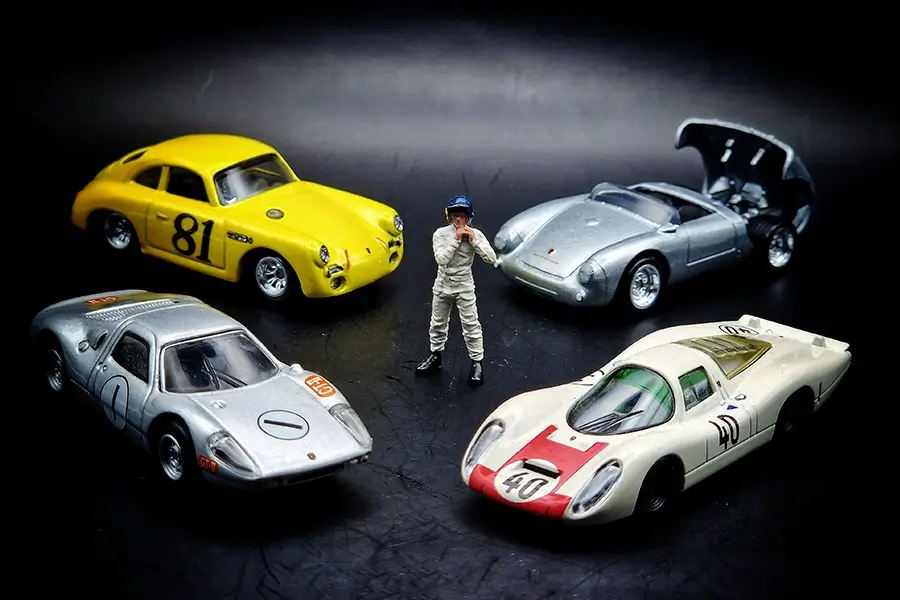
From the very beginning, Porsche used motorsport both to publicise its vehicles and to test new technologies in tough racing conditions. Less than three weeks after its individual registration, the Porsche 356 "No. 1" achieved a class victory in the Innsbruck city race on 1 July 1948 and thus successfully passed its first test. Further victories for the coupé variants of the Porsche 356 were not long in coming. In addition to numerous victories in the national sports car championships, major international successes were also celebrated early on. In traditional races such as Le Mans, the Mille Miglia or the Carrera Panamericana, the light, manoeuvrable and reliable Porsche Type 356 and 550 racing sports cars were always among the sure-fire contenders for class victory. By the mid-fifties, the young Porsche company had already achieved more than 400 racing successes.
Porsche 911
From the very beginning, the 911 also had to prove its performance in motorsport: in 1965, Porsche entered an almost standard 911 2.0 in the Monte Carlo Rally. The 911 was able to demonstrate its reliability in many other rally starts in the following years. In 1970, Porsche achieved a hat-trick at the Monte Carlo Rally, in 1984 Porsche won the Paris-Dakar Rally with the 911 Carrera 4x4, and two years later the 959 came up trumps, taking first, second and sixth place. The Porsche 911 excelled even more on the racetrack than in rallying. A milestone was the 911 Carrera RS 2.7, which went into series production as a homologation vehicle in autumn 1972. The 911 Carrera RS was the starting point for many 911s with racing attributes at venues such as Watkins Glen, Targa Florio or Le Mans.
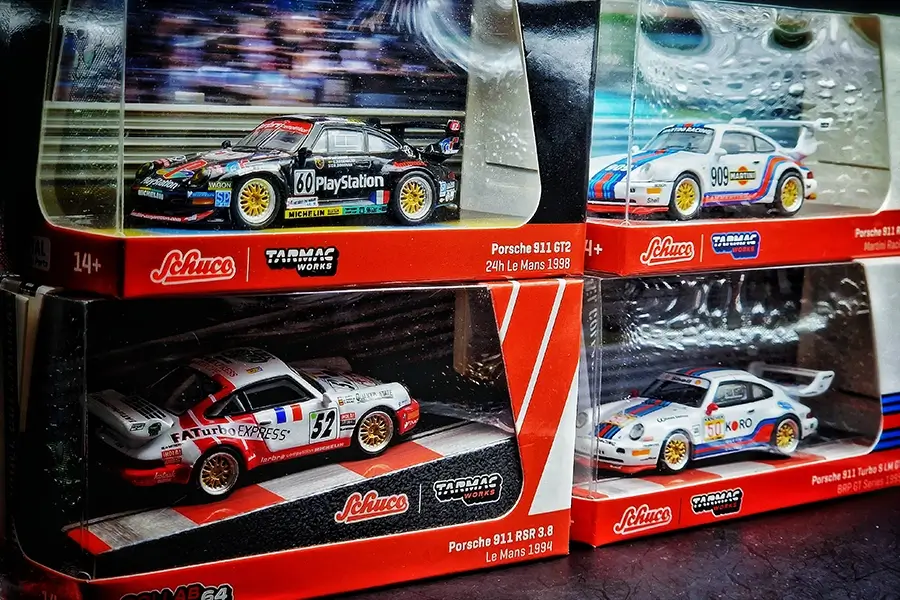
Porsche 935
In 1977, the 911 once again proved the versatility of its concept: In just its second race, the 380 hp 935/77 won in Hockenheim by 52 seconds. Another extreme was the Porsche 935/78 "Moby Dick" from 1978, which was designed for top speed and was measured at 366 kilometres per hour at Le Mans. Its 3.2-litre six-cylinder engine with an output of up to 845 hp was also characterised by a pioneering special feature: For the first time in the history of the 911, the engine was fitted with water-cooled cylinder heads.
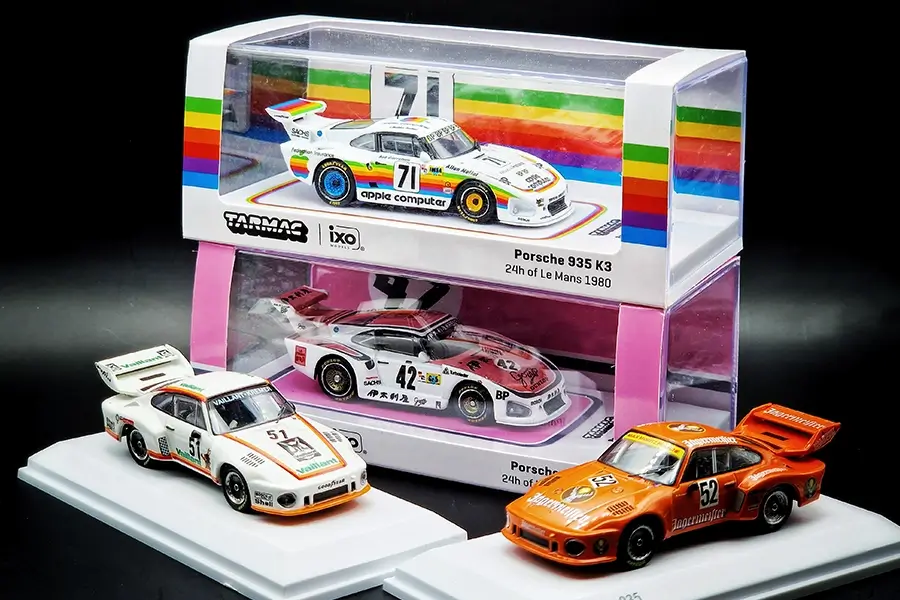
Porsche 917, 936, 956 und 962
Le Mans is the magic word for motorsport enthusiasts. The race around the clock, 24 hours long, impresses everyone because it demands the highest speed with the greatest reliability. Porsche has become a legend in the endurance classic - with 16 overall victories. It all started with Hans Herrmann and Richard Attwood in the Porsche 917K in 1970, followed by Gijs van Lennep and Dr Helmut Marko the following year and the American CanAm Championship with the 917/10 in 1972. Porsche achieved further overall Le Mans victories with the Type 936 in 1976 and 1977. The eighties of Porsche motorsport were characterised by the extremely successful Group C prototypes Porsche 956 and 962. Porsche achieved a one-two-three Le Mans victory with the 956 in 1982. Seven overall victories at Le Mans, ten triumphs at Daytona and Sebring, five manufacturers' and team world championships and four championships in the American IMSA series made the Porsche 956/962 the most successful racing car of its time.
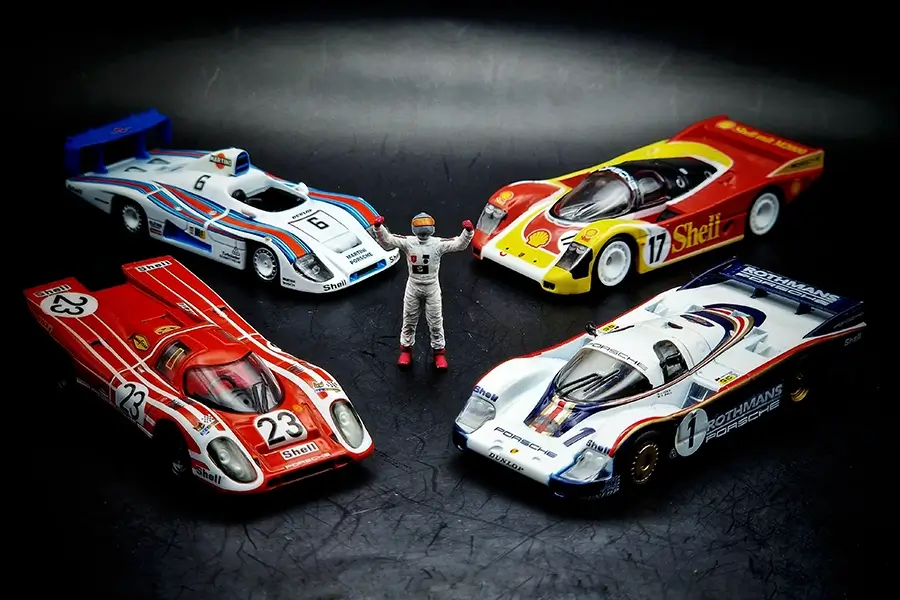
Porsche 911 GT1
The 911 GT1 was developed for factory use in 1996. In 1998, Porsche used a sports car with a carbon fibre chassis for the first time. In keeping with the 50th anniversary of Porsche sports cars, a 911 GT1 was the first to cross the finish line at the 24 Hours of Le Mans, taking Porsche's 16th overall victory in 1998.
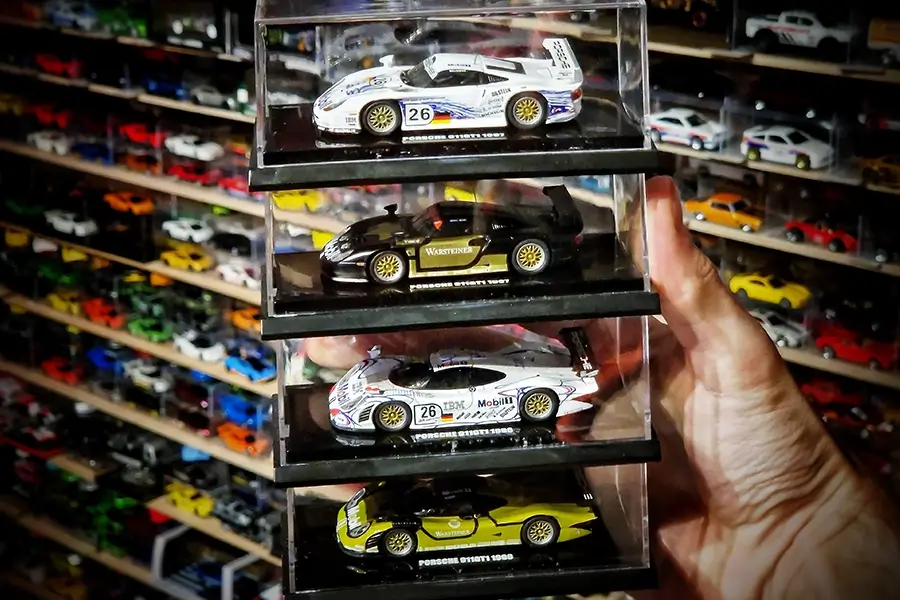
Porsche's domain has always been motorsport with prototypes and sports cars, because these regulations provide a link to series production. The many successful Porsche racing sports cars such as the 550, 718, 804, 904, 906, 907, 908, 910, 917, 935, 936, 956/962 and 911 GT1 are unforgettable. professional private teams have celebrated major victories on all the world's major racetracks. This has also been the case from the 2000s to the present day, where the 911 GT3 vehicles are building on the successes where these legends once made their mark!
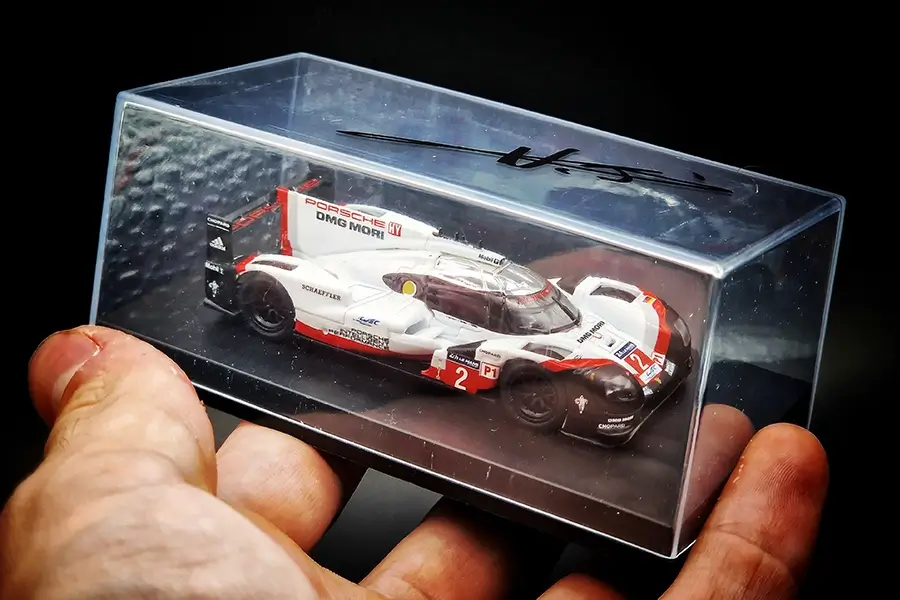


You May Also Like
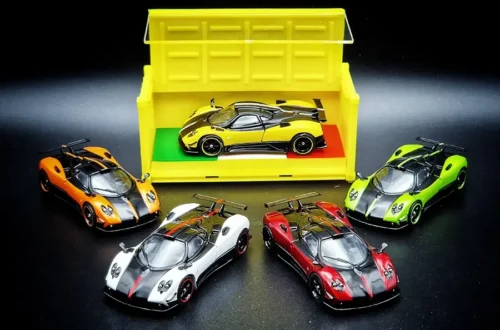
Tarmacworks Pagani Zonda Cinque FEATURETTE
May 20, 2023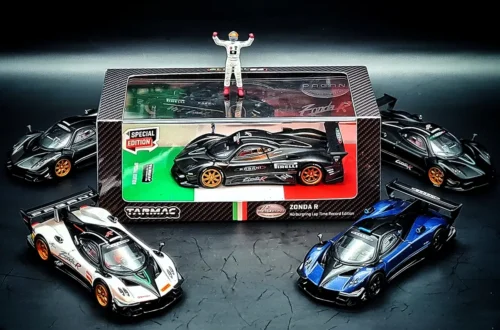
Tarmacworks Pagani Zonda R / Revolucion – A piece of art FEATURETTE
December 23, 2022
